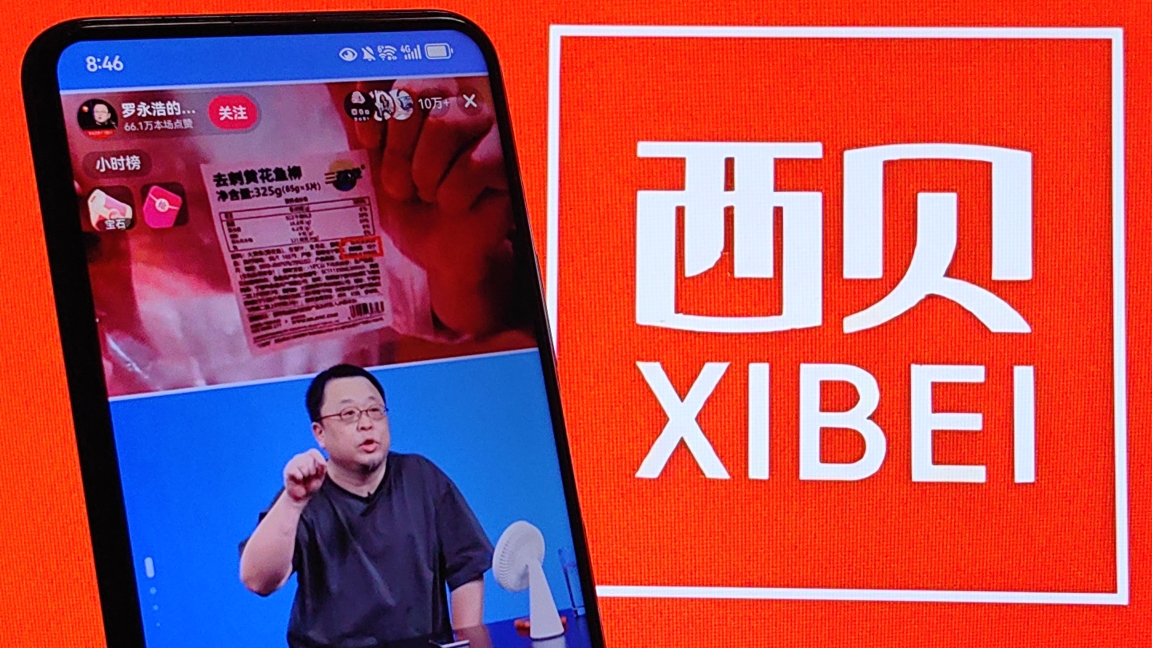
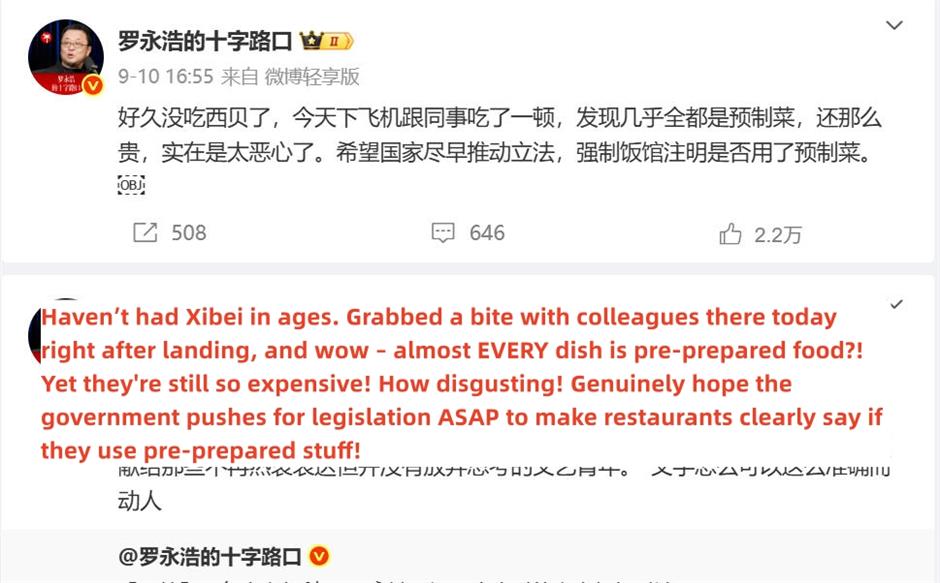
Chinese influencer Luo Yonghao's Weibo post has got more than 20,000 likes.
"Almost every dish is pre-prepared, yet they're still so expensive! Disgusting!" When Luo Yonghao took to Weibo to vent that frustration on the afternoon of September 10, he probably knew what he was in for.
Luo's resume is a study in reinvention: once an popular English tutor, then a smartphone entrepreneur, he's now carved out a massive following as a livestream e-commerce star.
He's also famously known for pushing back against Starbucks' drink cup size naming in 2010, arguing it defied common sense. The following year, he took a sledgehammer to his own Siemens refrigerator – plus two belonging to others – right in front of Siemens' Beijing headquarters. He accused the brand of selling fridges with faulty door-sealing issues and slammed its customer service for dodging responsibility.
His latest allegation forced Xibei, the high-profile Chinese restaurant chain that owns about 400 outlets nationwide, into damage control mode. The eatery rushed to detail its kitchen processes and even invited diners to inspect how the dozen dishes Luo ordered were prepared.
Jia Guolong, CEO of Xibei, even threatened to file a lawsuit against Luo, alleging that as an influential public figure, Luo's allegation has inflicted material damage to the repute of Xibei.
He said daily revenue across all stores had dropped by 1 million yuan each day over the first two days, and estimated the revenue drop would widen in the following days.
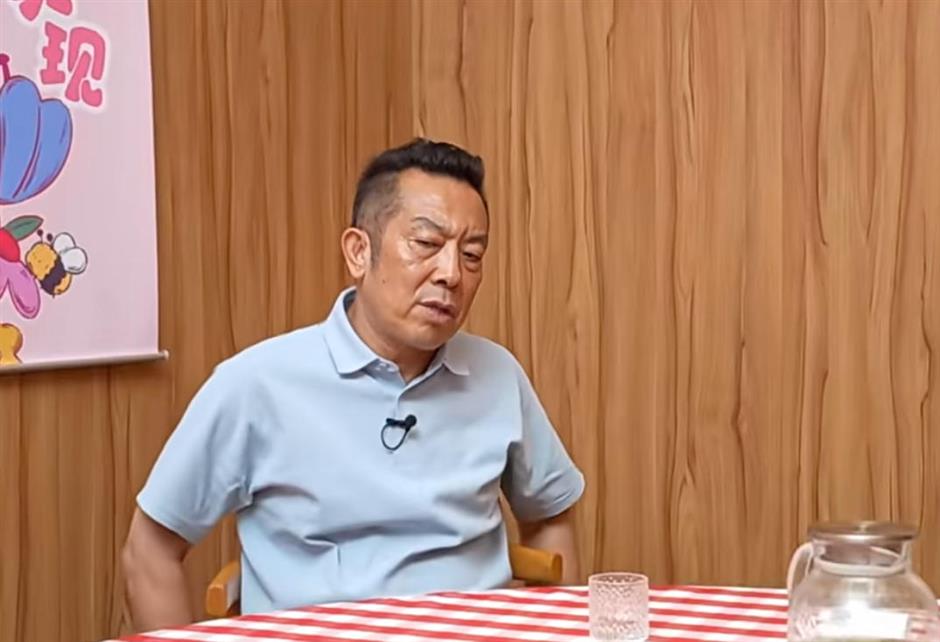
Jia Guolong, CEO of Xibei
While a lot of people get uneasy at the mention of "pre-prepared dishes," how we view them depends entirely on context.
Often called ready-to-cook or pre-portioned meals, these are food products that undergo partial or full processing at professional facilities first, before being finished into meals at restaurants or in home kitchens.
The simplified cooking process, improved efficiency, and quality consistency even make them preferred in some scenarios.
From late 2022 to early 2023, some educational authorities had expressed their endorsement of the use of ready-to-cook meals in primary and middle school. That stance shifted, though, after parents raised widespread concerns about food preservatives and additives.
The fact that Xibei had to deny using pre-prepared foods shows how little public trust they have right now.
Jia claimed that none of the chain's dishes are pre-prepared food. His confidence stems from a key policy issued in March 2024 by six Chinese government agencies, including the State Administration for Market Regulation. Titled "Circular on Strengthening Food Safety Supervision of Pre-Prepared Foods and Promoting High-Quality Industry Development," the document draws a clear line in how such products are classified and explicitly bans the use of preservatives in pre-prepared foods.
Officials clarified in the guidelines that cleaned vegetables, semi-finished products, and finished dishes produced by restaurant chains' central kitchens and distributed to their own outlets aren't classified as pre-prepared foods. Since Xibei uses this exact model, their denial was technically accurate.
For many consumers like Luo, though, the definition is simpler: they see "real restaurant food" as something processed and cooked right on the premises – not food that's partially processed, pre-cooked, frozen, then reheated, which is exactly what media found with some of Xibei's dishes these days when visiting its kitchens.
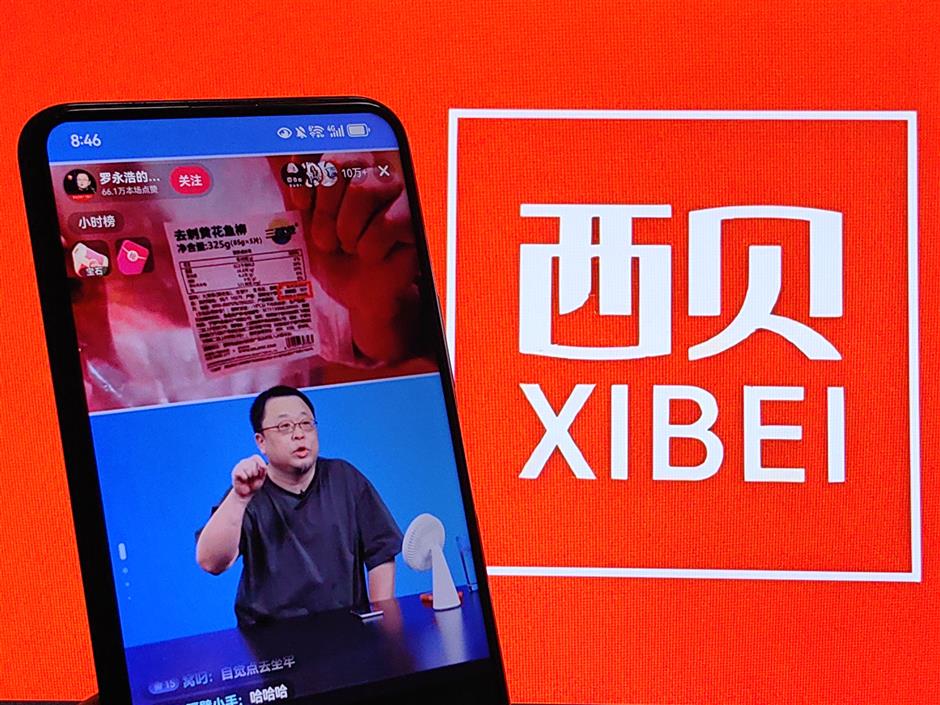
Luo Yonghao had a livestream on Friday night, drawing millions of viewers.
It seems easier to understand why in this debate, most consumers tend to be supportive of Luo.
When consumers sit in a fancy restaurant, they expect the unique flavors and tastes to come from the craft of the chefs in the back kitchen, rather than the chemistry, churning, mixing, and blanching that take place in an industrialized setting. This expectation is not informed by any disdain for industrialization, but a humble wish that should be respected given the price they pay.
In a way, their approbation is shaped less by concerns over pre-prepared dishes per se, than the fact that many fancy restaurants, notwithstanding their protestations, are resorting to pre-prepared meals.
Pre-prepared foods are definitely allowed in China. Luo also said that he's never been against pre-prepared foods – instead, he wants to push for more transparency in the industry. For example, he's advocated for mandating clear labeling on menus to distinguish pre-prepared items from freshly cooked dishes, so diners can make choices with a clear understanding of what they're paying for and what they're actually getting.
According to the bill exposed by Xibei, Luo and four friends spent more than 800 yuan for 15 dishes.
"To me, pre-prepared foods are basically fast food –they don't deserve such a high price," Luo argued during a Friday night livestream that pulled in millions of viewers. "I eat fast food too, but there's a huge difference in cost. It's unfair to charge fine-dining prices while serving something that's basically fast food."
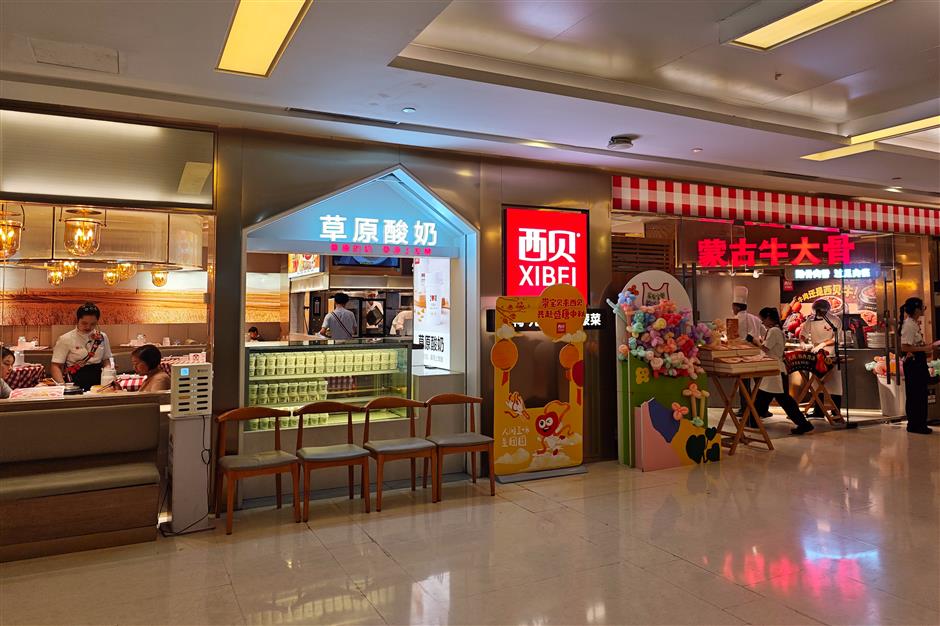
A Xibei outlet in Shanghai

